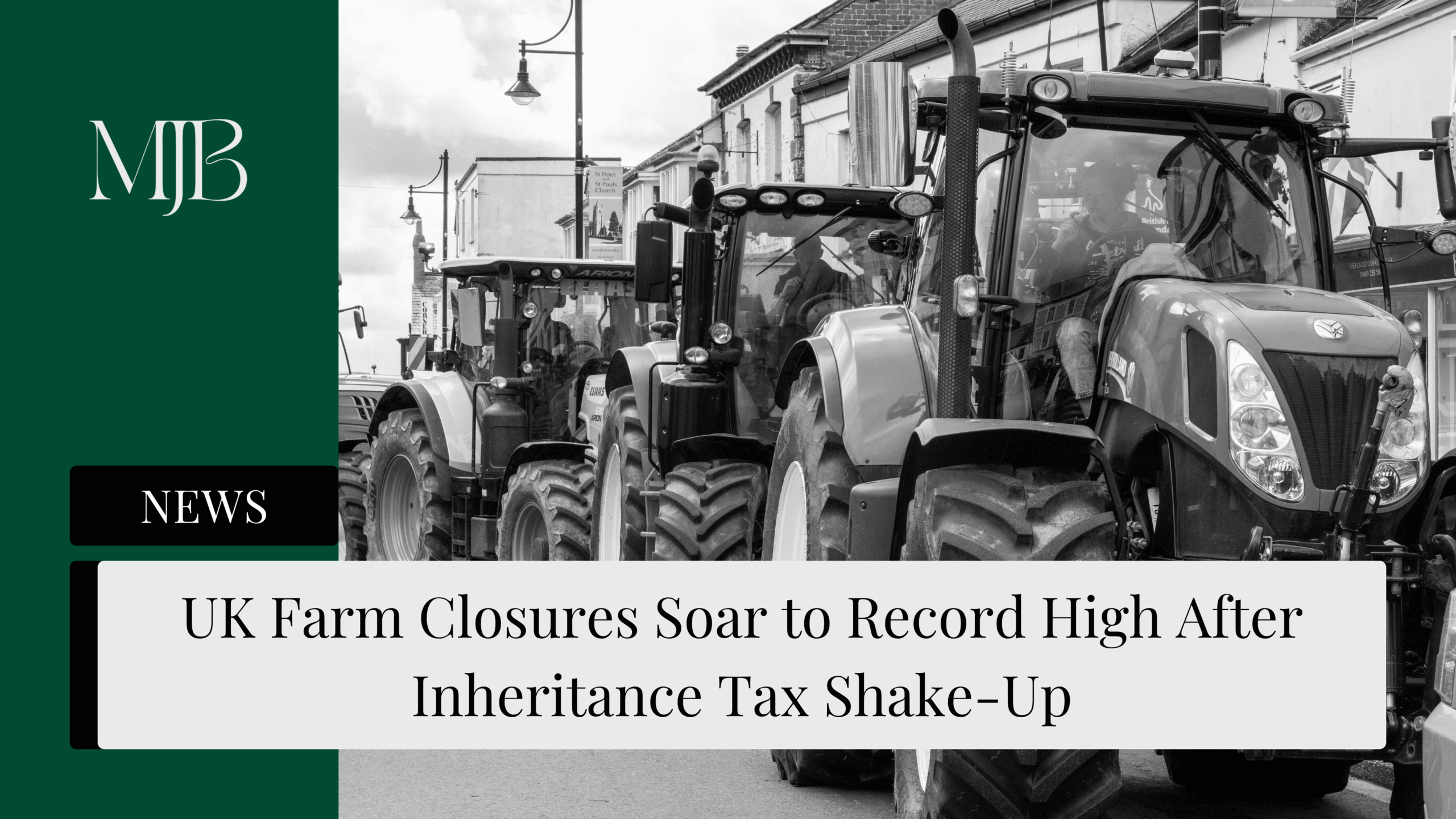A staggering 6,365 farms have shut their doors in the past year – the highest number since records began in 2017. The culprit? The government’s decision to axe a tax break that’s been keeping family farms alive for decades.
The numbers tell a brutal story: for every farm that opened, two closed. That’s a net loss of over 3,000 agricultural businesses, and it’s got everyone from Westminster to rural villages asking the same question – are we witnessing the death of British farming?
The Tax That’s Breaking Farmers’ Backs
Here’s what changed: Chancellor Rachel Reeves decided to end Agricultural Property Relief in April 2026. This decades-old inheritance tax carve-out let farmers pass down their land tax-free. Now? They’ll pay 20% inheritance tax on farm assets worth over £1 million.
The government’s logic? Super-rich landowners were gaming the system, using farms as tax shelters. Several economic think tanks backed the move, calling it a necessary plug for a costly loophole.
But farmers aren’t buying it. They’re calling it the “family farm tax” – and the closure statistics suggest they’re voting with their feet.
Why Farmers Are Throwing in the Towel
Tom Bradshaw from the National Farmers Union didn’t mince words: these closures show the “challenges and lack of confidence” hammering UK agriculture. Between cashflow crunches, extreme weather, and now inheritance tax headaches, running a farm has become a nightmare.
Olly Harrison, an arable farmer from the North West, bluntly put: “When the government throws you a bigger challenge than weather and nature combined, you might as well give up.”
The timing tells the story. Most closures happened in early 2025 – right after Reeves announced the tax changes. Coincidence? Unlikely.
The Government’s Defence Falls Flat
Ministers are scrambling to defend their position. They point to farming profits rising £1.6 billion last year and promise to cut red tape for EU exports. They’ve even appointed former NFU president Baroness Minette Batters to recommend profit-boosting reforms.
But here’s the reality check: farms worth over £1 million aren’t exactly rare. In today’s land values, that threshold catches more family farms than government estimates suggest. Even with spousal relief pushing the effective threshold to around £2 million, many multi-generational farms are still in the crosshairs.
What This Means for British Food Security
With over 3,000 fewer farms operating, questions about food security aren’t just academic anymore. Each closure represents lost local food production, rural jobs, and agricultural expertise that takes generations to build.
The ripple effects extend beyond farming families. Rural communities lose economic anchors, and Britain becomes more dependent on food imports – not exactly ideal in an increasingly uncertain world.
The Bottom Line
The government’s inheritance tax changes aimed to close a loophole but triggered an agricultural exodus instead. With record farm closures mounting, Britain faces a stark choice: support family farming or watch it vanish. The economics of British farming just became far more complicated – and the clock is ticking until April 2026.
FAQ
Q1: How many farms closed due to the inheritance tax changes?
A: Official data shows 6,365 agriculture, forestry, and fishing businesses closed in the past year – a record high since data collection began in 2017. This represents a net loss of over 3,000 farms when new openings are factored in.
Q2: What exactly is Agricultural Property Relief?
A: It’s an inheritance tax exemption that allowed farmers to pass down their land and farm assets tax-free to the next generation. The government is ending this relief in April 2026, replacing it with a 20% tax rate on farm assets worth over £1 million.
Q3: Will all farms pay inheritance tax under the new rules?
A: No, only farms with assets worth more than £1 million will face the 20% inheritance tax rate. The government claims other reliefs mean the effective threshold is closer to £2 million for most farming families.
Q4: Why did the government make this change?
A: Ministers argued that wealthy non-farmers were exploiting Agricultural Property Relief as a tax avoidance scheme. Several economic think tanks supported closing what they viewed as an expensive loophole.
Q5: When do the new inheritance tax rules take effect?
A: The changes become effective in April 2026, giving farming families time to plan for the new tax regime. However, many farms have already begun closing in anticipation of the policy change.
DISCLAIMER
Effective Date: 15th July 2025
The information provided on this website is for informational and educational purposes only and reflects the personal opinions of the author(s). It is not intended as financial, investment, tax, or legal advice.
We are not certified financial advisers. None of the content on this website constitutes a recommendation to buy, sell, or hold any financial product, asset, or service. You should not rely on any information provided here to make financial decisions.
We strongly recommend that you:
- Conduct your own research and due diligence
- Consult with a qualified financial adviser or professional before making any investment or financial decisions
While we strive to ensure that all information is accurate and up to date, we make no guarantees about the completeness, reliability, or suitability of any content on this site.
By using this website, you acknowledge and agree that we are not responsible for any financial loss, damage, or decisions made based on the content presented.






